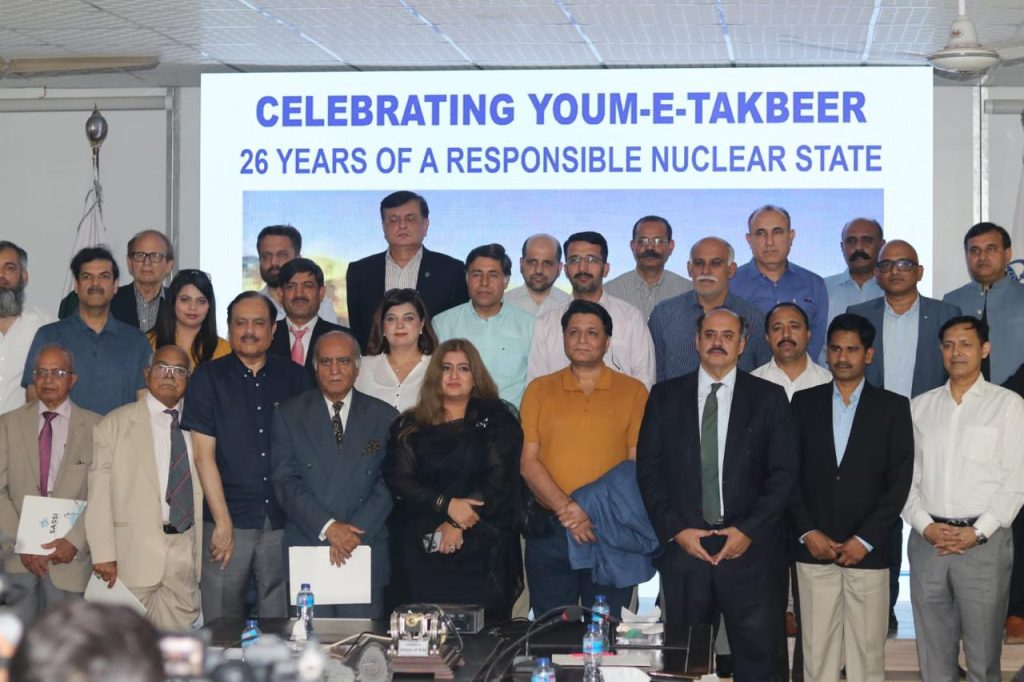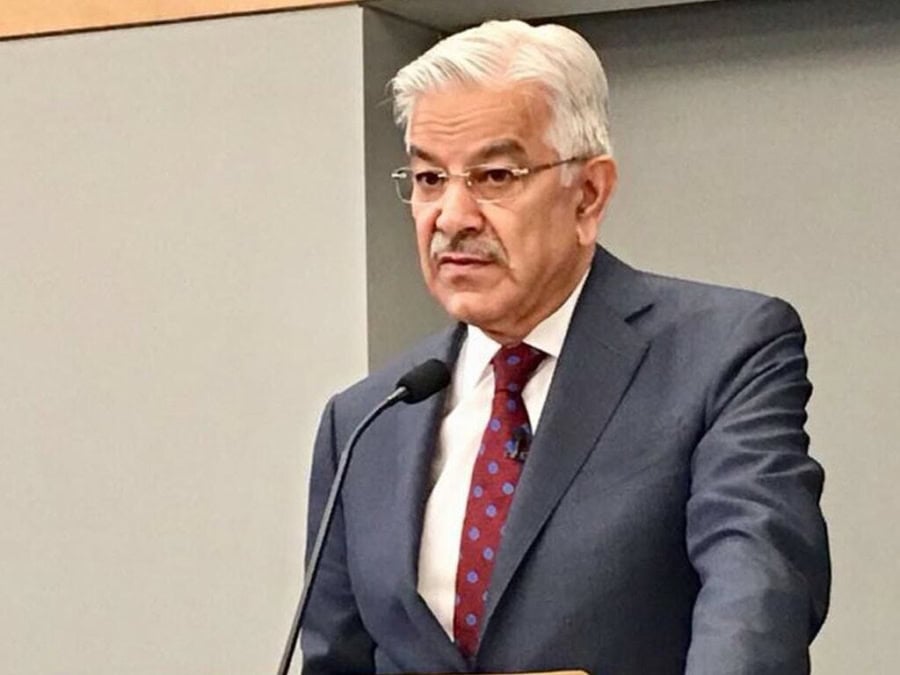ISLAMABAD — Minister for Defence, Khawaja Muhammad Asif, on Thursday, said that Pakistan’s nuclear capability is a guarantor for peace in the region, establishing full-spectrum deterrence and maintaining regional power balance, particularly against India.
He made this statement in a video at the 30th May 2024 South Asian Strategic Stability Institute (SASSI) University event, commemorating the 26th anniversary of Youm-e-Takbeer. The event marked the nation’s historic nuclear tests on May 28 and 30, 1998, and was titled “Youm-e-Takbeer: 26 Years of Responsible Nuclear State,” hosted by SASSI University in Islamabad.
He emphasized that Pakistan’s nuclear capability remains a solid defensive measure, deterring aggression and safeguarding national sovereignty. In light of past aggressive actions such as those in Balakot, he reaffirmed Pakistan’s readiness to respond to any threats, highlighting that any act of war would have severe consequences for the aggressor. He also paid tribute to the scientists, engineers, and all those involved in developing Pakistan’s nuclear program. When discussing the pressures faced by Pakistan in the May 28th decision in 1998, he paid tribute to PM Nawaz Sharif for his momentous decision to go nuclear.

Chief of Army Staff, General Syed Asim Munir Ahmed Shah NI(M), HI(M), in a written statement, extended congratulations to the nation and Armed Forces on the anniversary of Youm-e-Takbeer. He praised the 1998 nuclear tests for establishing credible minimum deterrence and restoring regional power equilibrium. The Chief of Army Staff paid tribute to the scientists, engineers, and officials whose dedication and sacrifices were instrumental in achieving this milestone. He reaffirmed the Armed Forces’ unwavering commitment to defending Pakistan’s sovereignty and territorial integrity at all costs.
Dr Zafar Nawaz Jaspal, Dean of Social Sciences at Quaid-e-Azam University, highlighted the strategic importance of nuclear capabilities for nuclear-armed states and key regional actors. He called for a comprehensive review of global nuclear dynamics and regional challenges and advocated for the modernization of Pakistan’s nuclear arsenal and doctrine and the acceleration of the civilian nuclear energy program.
Dr. Maria Sultan, Chairperson and Director General of SASSI University, discussed the impact of nuclear posture and doctrine on regional military order and future nuclear program expansions in South Asia. She emphasized the ongoing debate between compellence and deterrence and the future of the atomic order in the third nuclear age.
Ambassador Khalid Mehmood, Chairman of the Board of Governors of the Institute of Strategic Studies Islamabad, also expressed support and facilitation to the nation for the historic event. He recalled the pressures on Pakistan in May 1998. He stated that while the international community exerted significant pressure, Pakistan also received support from friends who understood that Pakistan had developed the capability only as a last measure of defence. He added that the critical element in nuclear deterrence is national resolve and clarified that Pakistan has plenty of it in its defence.
His speech was followed by comments from Ambassador Ali Sarwar Naqvi, Executive Director of the Centre for International Strategic Studies (CISS), who added that Pakistan was a reluctant nuclear-weapon state. Still, the way the international community had responded to the Indian nuclear tests of May 11, 1998, left Pakistan with no choice but to go nuclear on May 28, 1998. This, he said, was particularly true as there was a genuine possibility of an attack on our nuclear capability if we had not tested.
The event emphasized Pakistan’s commitment to being a responsible nuclear state, ensuring regional stability, and pursuing peaceful atomic technology advancements for the credibility of deterrence as we faced an ever-changing environment.
The event concluded with a documentary on May 28th, 1998, and a vote of thanks to the heroes of Pakistan’s nuclear program. Many people from different walks of life attended the event, including the media, academia, armed forces, national security, and the diplomatic corps.










